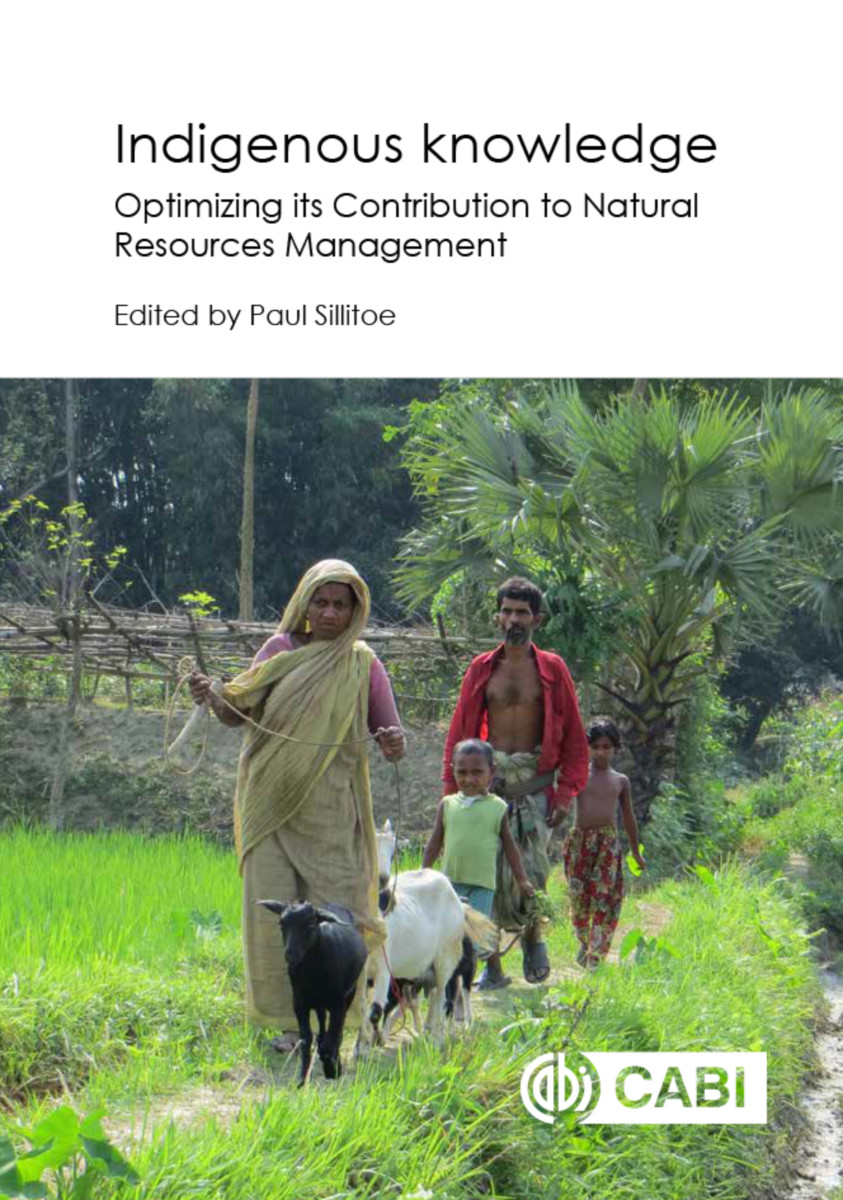Indigenous Knowledge
Enhancing its Contribution to Natural Resources Management
- Publisher
CABI - Published
28th December 2017 - ISBN 9781780647050
- Language English
- Pages 256 pp.
- Size 6.75" x 9.5"
Incorporating indigenous knowledge (IK) is crucial to effective development. This global research-level book on IK and natural resources management addresses cutting edge issues relating to soil management and land degradation, weed and pest control, crop breeding and yields, agro-biodiversity conservation, food production and marketing, climate change adaptation, forest use and agroforestry. It also includes discussion of methodological issues such as IK's integration into agricultural science and technology, technology innovation and adoption, systematic approaches to local management, integration of social and ecological processes, participatory methods and "citizen" science, use of videos, the role of international agencies, power dynamics and gender issues.
1: Indigenous Knowledge and Natural Resources Management: An Introduction Featuring Wildlife
Part 1: Change and dynamism
2: The dynamic nature of indigenous agricultural knowledge. An analysis of change among the Baka (Congo Basin) and the Tsimane’ (Amazon)
3: Contingency and adaptation over five decades in Nuaulu forest-based plant knowledge.
4: "Keeping our milpa": maize production and management of trees by Nahuas of the Sierra de Zongolica, Mexico
5: The contested space that local knowledge occupies: Understanding the veterinary knowledges and practices of livestock farmers in the Eastern Cape Province, South Africa.
Part 2: Diffusion and extension
6: Integrating indigenous knowledge for technology adoption in agriculture
7: Seeds of the devil weed: Local knowledge and learning from videos in Mali.
8: "I will continue to fight them": Local knowledge, everyday resistance and adaptation to climate change in semi-arid Tanzania
Part 3: Conservation and sustainability
9: Indigenous Soil Enrichment for food security and climate change in Africa and Asia: A Review
10: Will the real raised-field agriculture please rise? Indigenous knowledge and the resolution of competing visions of one way to farm wetlands.
11: Andean cultural affirmation and cultural integration in context: reflections on indigenous knowledge for the in situ conservation of agrobiodiversity.
12: The indigenous knowledge of crop diversity and evolution.
Part 4: Complexity and variability
13: Investigating farmers’ knowledge and practice regarding crop seeds: beware your assumptions!
14: Traditional domestic knowledge and skills in post-harvest processes: A focus on food crop storage
15: The local wisdom of Balinese subaks
16: Indigenous agriculture and the politics of knowledge


